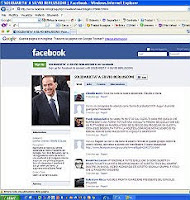The Only Certain Prediction for the Next Decade: All Forecasts Will be Wrong

As we approach the end of a decade once again the media have begun the tiresome review of the past ten years. Try as you might you will not find a newspaper or TV schedule that doesn’t feature some sort of overview of the noughties. Some, perhaps unwisely, are also essaying some predictions for the coming decades – the “oneties” I call them for the lack of a better name (the word comes from my three year old son who said onety-one, onety-two instead of 11 and 12 when he was smaller). Normally I would not add to the confusion, but this year I have decided to share with you the only prediction you will ever need. Cut this out and paste it to something everlasting like a pyramid where you can always find it: All Predictions Will Be Wrong. Why is it that predictions about the future are always so wrong? I believe that there are three fundamental mechanisms: 1. Underestimating the dominance of momentum: the Trains & Planes Case . Browsing through old books and magazines you will often ...







